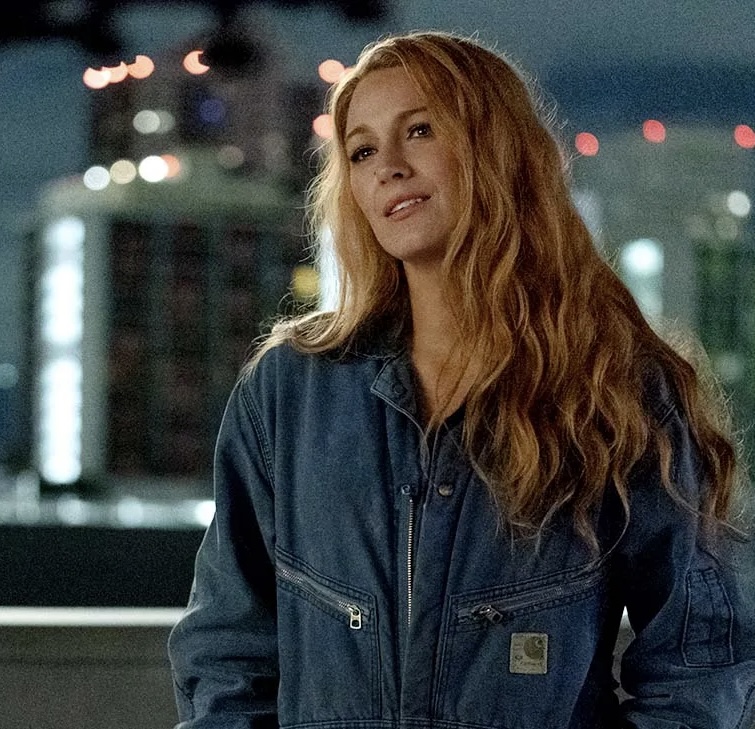In the weeks following the release of the movie adaptation of Colleen Hoover’s novel “It Ends With Us,” actress Blake Lively has come forward about sexual harassment from her co-star, Justin Baldoni.
The co-stars had a strenuous relationship before Lively’s harassment lawsuit came to light, partially detailed in a previous article for the Marquette Wire by Katie Mancini, and there is evidence to support Baldoni’s launching of a smear campaign against Lively. Baldoni is counter-suing Lively and her husband Ryan Reynolds, as well as the New York Times, for defamation.
Mancini’s article claims that Lively is just attempting to “save face,” as she had gained “a reputation of being difficult to work with,” implying that her story is fabricated or exaggerated for her own gain. Mancini also commented that Lively’s alleged dismissal of domestic violence advocacy was disappointing due to the movie’s portrayal of the sensitive topic and her harassment lawsuit against Baldoni.
These claims that Lively is falsifying Baldoni’s actions are reminiscent of the misogynist rhetoric that women fabricate allegations of sexual harassment and assault for their own benefit, as is the implication that the harassment and smear campaign against her is deserved due to her so-called unpleasant behavior.
It is also worth noting that Lively has long been a well-liked celebrity, and hardly needs to “save face,” as Mancini suggests. From her role as Serena van der Woodsen in “Gossip Girl” to her unforgettable Met Gala looks, she has solidified herself in pop culture as a prominent trendsetter. The negative publicity about Lively only started to really circulate after press for “It Ends With Us” began, which supports her claim of a smear campaign against her.
Regardless of her likeability or morals, Lively’s boundaries on and off set should be respected. The myth of the “perfect victim,” defined by Document Women as the belief that victims must be “devoid of mistakes and meet certain societal standards,” has done irreparable harm to sexual assault and domestic violence survivors, and the aforementioned article only perpetuates this myth.
Mancini faults Lively for focusing on the “floral aesthetic” of the film, having a poor reputation and being seemingly friendly with Baldoni before the allegations surfaced.
In Lively’s “floral” promotion of the movie, she is pictured with Hoover, the author of the source material. Yet, Mancini says nothing regarding Hoover’s failure to address such a sensitive topic as domestic violence with care. Perhaps it is not Lively but the novel itself that is insensitive regarding such abuse, as there are claims from many readers that it romanticizes violence.
Additionally, many have been using a surfaced video of Lively and Baldoni filming a scene in which the movie’s main couple are slow dancing and “falling in love” to undermine Lively’s story, saying that they are extremely friendly in the clip and Lively seems comfortable. However, Lively and Baldoni are respected actors: they are being paid to convincingly pretend they are in love. They are being filmed in the entire interaction and don’t have the opportunity to show their alleged disdain for each other.
Regardless of the nature of Lively and Baldoni’s relationship, sexual harassment can happen at any time, to anyone, by anyone. In fact, according to the National Institutes of Health, a distressing 76% of all sexual assaults are committed by a person known to the victim. Baldoni is not absolved of any blame solely because he and Lively used to be friends, especially considering his superior position as director of the movie, and he isn’t justified in abusing Lively simply because she is an imperfect person.
This isn’t the first time the myth of the perfect victim has caused the general public to villainize a victim. Just a few years ago, the public rallied against Amber Heard after she came forward about the abuse she suffered as Johnny Depp’s wife. Even though Heard never mentioned Depp by name in her op-ed for The Washington Post, Depp sued her for defamation in the United States and won, despite evidence of his abuse towards her and texts that threatened both rape and death against her.
Depp also attempted to sue The Sun in the United Kingdom for libel before his defamation case against Heard, but lost as the courts found the claims against him to be “substantially true.” The main difference between these two cases was an impressionable jury and American public opinion, which found Heard to be unlikable and contemptible. Heard’s reputation has never recovered, while Depp continues to thrive in the industry.
If the public continues to rally against women like Lively who speak up about sexual harassment and assault, it will only force more survivors into silence, ultimately reversing the hard work that the survivors before them had put in to create a supportive environment. Mancini’s article, while potentially well intentioned, only feeds into the misogynistic idea that victims of sexual harassment, assault and domestic violence must be a perfect victim in order to be redeemed or justified.
Regardless of your opinion of Blake Lively or other victims in general, it is harmful to perpetuate the myth of the perfect victim. It’s time that we, journalists especially, weigh the ramifications of our words when discussing sensitive topics such as sexual harassment and assault, and consider the harm we can bring upon marginalized groups if we discredit their experiences. In a culture that naturally silences the voices of the oppressed, it is imperative that we respect their stories when they have the courage to come forward and speak about their struggles.
This story was written by Ellie Nelsen-Freund and Salem Seymour. You can reach them at elizabeth.nelsen-freund@marquette.edu.






Jack Belmont • Feb 13, 2025 at 5:01 pm